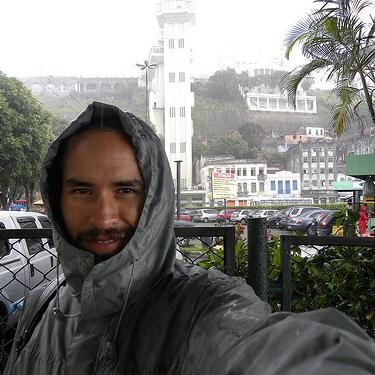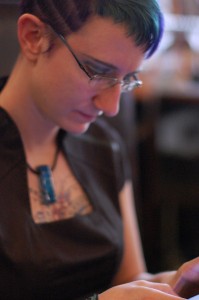2014-review
This article is a stub. You can help the IndieWeb wiki by expanding it.
2014 review is a list of indieweb and indiewebcamp accomplishments for all of 2014, as well as indieweb related news in 2014.
- Next year: 2015-review
IndieWeb Examples
Blog what you got done on your personal indieweb site in 2014, and add a link here!
- 2014-12-27
David Shanske: https://david.shanske.com/2014/12/27/indieweb-2014-end-year-summary/
- 2015-01-03
 Aaron Parecki: http://aaronparecki.com/articles/2015/01/04/1/owning-my-data-in-2014
Aaron Parecki: http://aaronparecki.com/articles/2015/01/04/1/owning-my-data-in-2014 - 2015-07-11
 Tom Morris: https://tommorris.org/posts/9344
Tom Morris: https://tommorris.org/posts/9344 - 2015-07-20
 Tantek Çelik: http://tantek.com/2015/201/b1/indiewebcamp-2014-year-review (including most of this page, with a bunch of personal first-person prose added)
Tantek Çelik: http://tantek.com/2015/201/b1/indiewebcamp-2014-year-review (including most of this page, with a bunch of personal first-person prose added) - ...
This Is A Movement
Grid of all the people who attended *any* 2014 IndieWebCamp from the Guest_List pages, with their names and domain names underneath their photos - everything linked to their domain.
Record Numbers of Things
IndieWebCamps
2014/ had record number of IndieWebCamps (6), 2x in number and locations over 2013!
- 2014/SF
- 2014/NYC
- 2014 PDX, NYC, Berlin
- 2014/UK
- 2014/Cambridge
- 2014/Online
IndieWebCamp Online
Near the end of 2014 we held the first IndieWebCamp Online, purely virtual, using IRC and Google Hangouts. A wonderfully successful experiment led by David Shanske.
Homebrew Website Club
2014 was the first full year of the Homebrew Website Club (HWC), met on 27 days across seven cities: San Francisco, Portland, Chicago, Minneapolis, New York, London, Paris.
- A Chicago chapter started 2014-04-09 and met 16 times.
- A pop-up London meetup was held 2014-05-21
- A pop-up New York meetup was held 2014-06-04
- A Minneapolis chapter started 2014-06-18 and met several times.
- Paris held a 2 hour "IndieWebCamp" meetup on 2014-10-05 that was very much like a HWC and discussed next steps for biweekly meetups and a 2 day IndieWebCamp in Paris!
- ...
Press
2014 had breakthrough press coverage of IndieWebCamp and the IndieWeb as a whole. Most notably:
- 2014-04-25 Dan Gillmor: Welcome to the Indie Web Movement
- 2014-09-03 Mathew Ingram: Don't like Facebook owning and controlling your content? Use tools that support the open Web
- 2014-09-11 Mathew Ingram: IndieWeb advocates launch Known so bloggers can be social and still control their content
See more articles about the IndieWeb in 2014.
Talks
2014 had a record number of IndieWeb related talks being given at conferences by community members. Here are a few of them ranging from introductory to technical:
- 2014-01-13 Amber Case: Rise of the Indieweb (YouTube, 44:59)
- 2014-03-19 Willow Brugh's graphical sketch explanation of Indie Web principles & why (YouTube, 5:02)
- 2014-06-04
 Tantek Çelik: Why We Need the #IndieWeb (YouTube, 13:15, HTML slides available)
Tantek Çelik: Why We Need the #IndieWeb (YouTube, 13:15, HTML slides available) - 2014-06-24
 Aaron Parecki: OAuth, IndieAuth, and the Future of Authorization APIs (YouTube, 43:26, HTML slides available)
Aaron Parecki: OAuth, IndieAuth, and the Future of Authorization APIs (YouTube, 43:26, HTML slides available)
Losses and Challenges
Losing one of our own
In memory of IndieWeb Community Member Chloe Weil.
- https://adactio.com/journal/7030
- https://adactio.com/chloe/
- http://tantek.com/2014/191
- ... Collect more indieweb posts about Chloe Weil
Site Shutdowns 2014
As expected, we saw many silos go offline, taking millions of permalinks with them. Here are a few of the notable site deaths:
Acquishutdowns
The most common shutdowns were acquisitions or acquihires:
- Yahoo shutdowns: Ptch.com, Donna, Vizify
- Skype shutdown: Qik
- eBay shutdown: Svpply
- Ancestry.com shutdown: MyFamily.com
- Vox Media acquired the staff & technology of Editorially, founders shut the side down
Short Notice Shutdowns
The second most often shutdowns came suddenly, or nearly suddenly, unexpectedly, and sometimes with a complete loss of content:
- Spreadly - site went offline without any notice
- Fotopedia - 10 days notice and "all photos and data will be permanently deleted"
- Justin.tv - two weeks notice and all videos deleted
- Codespaces - most content deleted by vandals, site shutdown rather than attempt recovery.
The Cloud Is A Lie
So-called "cloud" services have been heralded as the new most reliable, scalable, available thing for storage etc., and yet this past year:
- Ubuntu One cloud sync service shut down with only two months notice.
Breaking The Web
All these shutdowns break the web in some way or other, however, there are particularly egregious examples of breaking the web, such as when third-party link-shorteners and identity providers are shutdown. In 2014 we lost another one of each.
- s.tt link shortener shutdown by parent company and site Repost which itself shutdown as well
- myOpenID.com popular OpenID provider shutdown.
Losing A Classic
Lastly we lost a classic site in 2014:
- 43things.com - after 10 years of service, the sites owners decided to shut it down.
See: site-deaths#2014 for more.
Indie Term Re-use
Due in large part to the growing awareness and popularity of the IndieWeb, press coverage etc., 2014 saw both the launch of other "Indie" branded efforts, sometimes with deliberate overlap, or opportunistic use of the term "indie" as a shorthand for "independent".
In name:
- ind.ie - numerous instances of people confusing ind.ie and indieweb can be found on Twitter
- criticism of one would lead to criticism of the other & vice versa[1]
- indie.vc - new but has already been confused.
In self-description:
- Good Web Bundle - during its sale period (2014 Holiday season), The Good Web Bundle promoted[2] itself with:
Emphasis addedThe best sites on the web aren't always the biggest. Support great indie sites, and save on your favorite new apps!
- This was close enough to "indie web sites" to eventually mutate into literal "indieweb" references, e.g.: 2015-01-05: https://twitter.com/NitiBhan/status/552046013339271168
Emphasis added[...] Interestingly, here's a subscription service bundle pulled together by indieweb founders https://goodwebbundle.com/
- This was close enough to "indie web sites" to eventually mutate into literal "indieweb" references, e.g.: 2015-01-05: https://twitter.com/NitiBhan/status/552046013339271168
Technologies
In 2014 we proposed, discussed, specified, built, and interoperably deployed the following indieweb technologies: (in alphabetical order)
- fragmention - a way to use a URL to link and cite individual words or phrases of a document
- h-feed - while previously proposed on microformats.org, in 2014 the indieweb community adopted h-feed as the primary DRY way to markup a feed or stream on an HTML page, published multiple indieweb sites with it, as well as multiple indieweb readers consuming it, consequently upgrading it to an official microformats.org draft.
- indie-config for webactions - indie-config is a set of client & server libraries to enable seamless webactions across sites (invented, and implemented interoperably at IndieWebCamp Brighton 2014)
- marginalia - within a few months of the invention of fragmentions, community members realized they could post indie reply posts on specific paragraphs of a post, or any phrase, and the receiving post could display them as comments in the margins, thus inventing distributed marginalia, a feature previously only available in proprietary text editors like Word, Google Docs, or the Medium silo.
- Micropub - a standard API for publishing and updating posts on indieweb sites (conceived in 2013, first interoperably implemented in 2014) with:
- 8 client implementations as of 2014
- 6 server implementations as of 2014
- person-tag - a special kind of tag on a post or in post content that refers to a specific person by URL (and name) rather than just a word or phrase. Only publishing examples in 2014 (subsequent interop in 2015).
- Vouch - a webmention protocol extension to prevent spam (interop at 2014/Cambridge)
- ... add more here - check demos from IWCs 2014 for evidence of technology development
Post types in particular:
- collection - a type of post that explicitly lists/embeds multiple other posts chosen by the author
- edit - a special type of reply that indicates a set of suggested changes to a post
- exercise - a broad post type that represents some form of physical activity, i.e. quantified self
- food - a new post type that represents eating or drinking
- invitation - a new post type, including how to markup. Supported by Bridgy as a way of backfeeding invitations made on Facebook POSSE copies of event posts.
- quotation - a type of post that is primarily a subset of the contents of another post usually with a citation.
- sleep - similar to exercise this post type is for tracking when, how deeply, and how long you sleep.
- travel - a post type about plans to change locations in the future.
Services
Beyond technologies, several indieweb services were built, deployed, and significantly improved by the community.
- Withknown launched, both as the open source Known project you can download, install, and run independently on your own domain, and a hosted service at withknown.com that made it easy for anyone to quickly signup and get setup with a modern indieweb enabled site.
- Bridgy crossed the 1000 user threshold and was improved with numerous new features:
- backfeed from POSSE Facebook events of RSVPs and invitations (GitHub issue)
- new! Bridgy Publish - POSSE posts from your site to silo destinations (Twitter and Facebook), both interactive and via webmention based API
- new! Blog host webmentions - Users of Blogger, Tumblr, and WordPress.com hosted blog services can now sign-up to receive webmentions like any other indieweb blog!
Community Resources
There's lots to technology development beyond the technology itself. Over 1000 new pages were created in 2014 that documented everything from concepts, to brainstorms, designs, and everything else indieweb related that the community came up with.
The IndieWebCamp wiki is now the pre-eminent reference for all things Independent Web.
If you have a question about something "independent" and "web", you're very likely to find the answer at https://indiewebcamp.com/
Here are some of the best resources created in 2014:
- archive - the UI Pattern of providing archives of your posts that users can navigate
- communication - how to create a communication / contact page on your own indieweb site, with clear one-click buttons for people to contact you as desire and are capable of being contacted.
- disclosure - how to proactively disclose some aspect about a site that the site owner wants the user to explicitly be aware of
- facepile - the UI pattern of providing a set of small face icons as a summary of people, e.g. that like a post, or have RSVPd to an event
- file-storage - why, how, and examples of the common IndieWeb practice of storing your data in flat files (instead of the customary webdev habit of using a database)
- follow & unfollow - documentation and implementation of the concept of (un)following people and posts
- FreeMyOAuth - a one stop page to quickly access the "what have I authorized on what services" lists so you can de-authorize any apps you no longer use or don't recognize
- generations - perhaps one of the most important pages created in 2014. Generations showed for the first time an overview of how the IndieWeb approach of engaging development leaders first (e.g. by focusing on selfdogfooding), then journalists & bloggers, etc. provides a rational and steady growth path for the indieweb to eventually reach anyone who desires an independent presence on the web that they own and control.
- HTTPS - best step-by-step documentation for how to setup HTTPS on an independent site, with choices, levels to achieve, and real world examples
- mobile - a great summary of mobile first and other mobile specific design considerations, how tos, etc. for any indieweb site
- mute - the ability to skip seeing someone's posts, while still following them in general
- notification - research and analysis of both push notifications and notification pages across various applications and silos
- onboarding - the user experience of a first time user of a site, service, or product, who is looking to sign-up or otherwise get started using it.
- payment - how to create a payment page on your own indieweb site, and how to create the links to various payment services for your readers to click and pay you directly
- scope - summary of what are OAuth scopes, examples of them used by IndieWeb apps, sites, and silos.
- this-week-in-the-indieweb - a weekly digest of activities of the IndieWebCamp community, including a summary of wiki edits for the week
- URL design - a collection of analysis and best practices for designing human-friendly and robust URLs, e.g. for permalinks
- wikifying - simple steps for new community members to start engaging on the wiki
- ...
Summary And Looking Forward
2014 was a year of incredible gains, and yet, a very sad loss for the community. In many ways I think a lot of us are still coping, reflecting. But we continue, day to day to grow and improve the indieweb, as I think Chloe would have wanted us to, and as she herself did.
By the end of 2014 we had community members to organize IndieWebCamps in 2015 in more cities than ever before, and similarly, to start local chapters of the Homebrew Website Club as well.
I'm grateful for each and every person I've met and worked with in the community. Everybody brings their own perspective, their own wants and desires for their own website. As a community, we can best help people by channeling their desires of what should be done, into what they should do on their own website for themselves, building upon the work of the community, and then, how can we connect amongst our sites, and in-person, to motivate each other to do even more. And that's exactly what we did at the end of the year.
New Year Commitments
At the last Homebrew Website Club meetup of the year on 2014-12-17, we decided to make verbal commitments to each other of what we wanted to create, launch, and start using on our own site by the start of the next year.
As you might guess, we did pretty well with those commitments, but that's a subject for another post.
Other Years
See Also
- 2014-created - pages created in 2014








































































